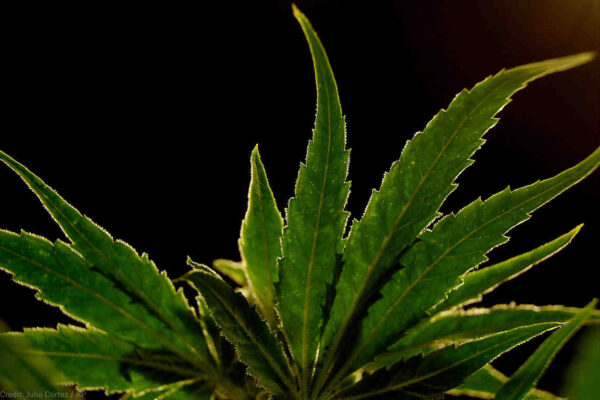Louisiana among 17 states where arrests for marijuana increased from 2010 to 2018
NEW ORLEANS – Today the American Civil Liberties Union released a new report that showed Black people are 3.4 times more likely than white people to be arrested for marijuana possession in Louisiana, despite comparable national marijuana usage rates. Louisiana was among 17 states where arrests for marijuana possession increased from 2010 to 2018, with arrests increasing by more than 18 percent over that period.
“Louisiana continues to be an outlier in pursuing a harmful and counterproductive war on drugs, which disproportionately targets Black communities and entangles hundreds of thousands of people in the criminal legal system every year,” said ACLU of Louisiana executive director Alanah Odoms Hebert. “This report complements the disturbing findings of our ‘Justice Can’t Wait’ report on pretrial detention, which found that a majority of people jailed awaiting trial in Louisiana are being imprisoned for low-level offenses like drug possession. As a deadly pandemic threatens to spread through Louisiana’s overcrowded prisons and jails, these findings are a chilling reminder of the racial disparities driving our mass incarceration crisis. As a matter of racial justice and sound public health policy, Louisiana must release people from these dangerous conditions and legalize marijuana with racial equity at the foundation of such reform.”
Although the total number of people arrested for marijuana possession has decreased in the past decade, nationally, law enforcement still made 6.1 million such arrests over that period, and the racial disparities in arrest rates remain in every state.
The report, “A Tale of Two Countries: Racially Targeted Arrests in the Era of Marijuana Reform,” details marijuana possession arrests from 2010 to 2018 and updates the ACLU’s unprecedented national report published in 2013, The War on Marijuana in Black and White.
Key findings include:
- Across the U.S., law enforcement made more than 6.1 million marijuana-related arrests from 2010 to 2018.
- In Louisiana alone, there were almost 21,331 marijuana arrests in 2018, the vast majority of which were for possession. In 2018, marijuana possession arrests accounted for 51 percent of all drug arrests in Louisiana.
- Overall national arrest rates have trended downward, however in Louisiana, marijuana possession arrests have actually increased 18.1% percent from 2010 to 2018.
- Nationally, in 2018, law enforcement made more marijuana arrests than for all violent crimes combined.
- A Black person in Louisiana is 3.4 times more likely to be arrested for marijuana possession than a white person, ranking 29th in the nation in racial disparities.
- St. Mary, Louisiana ranks among the top 20 counties nationally for marijuana possession arrest rates, while Bossier Parish and Vermilion Parish ranked among the top 20 counties nationally for the largest increases in arrest rates since 2020.
A Tale of Two Countries: Racially Targeted Arrests in the Era of Marijuana Reform comes at a time when the criminal legal system is overwhelmed by the COVID-19 public health crisis that demands expedited decarcercal action to safeguard the lives of those incarcerated in and employed by jails and prisons. The reforms recommended in this report provide a road map for reducing marijuana arrests and criminalization as governors, prosecutors, judges, and other stakeholders across the country grapple with the harms presented by the public health crisis and take steps to release people from jails and prisons.
To combat the racial disparities rampant in marijuana-related arrests, the ACLU of Louisiana is calling not only for an end to racialized policing, but also for full legalization of marijuana use and possession and specific measures to ensure legalization efforts are grounded in racial justice.
This includes pressing for passage of the MORE Act, which aims to correct historical injustices of the failed War on Drugs that has terrorized Black communities and decriminalizes marijuana at the federal level, reassesses marijuana convictions, and invests in economically disadvantaged communities.
The full report is available here.
State-level interactive data is available here.
Stay Informed
Sign up to be the first to hear about how to take action.
By completing this form, I agree to receive occasional emails per the terms of the ACLU’s privacy statement.
By completing this form, I agree to receive occasional emails per the terms of the ACLU’s privacy statement.

